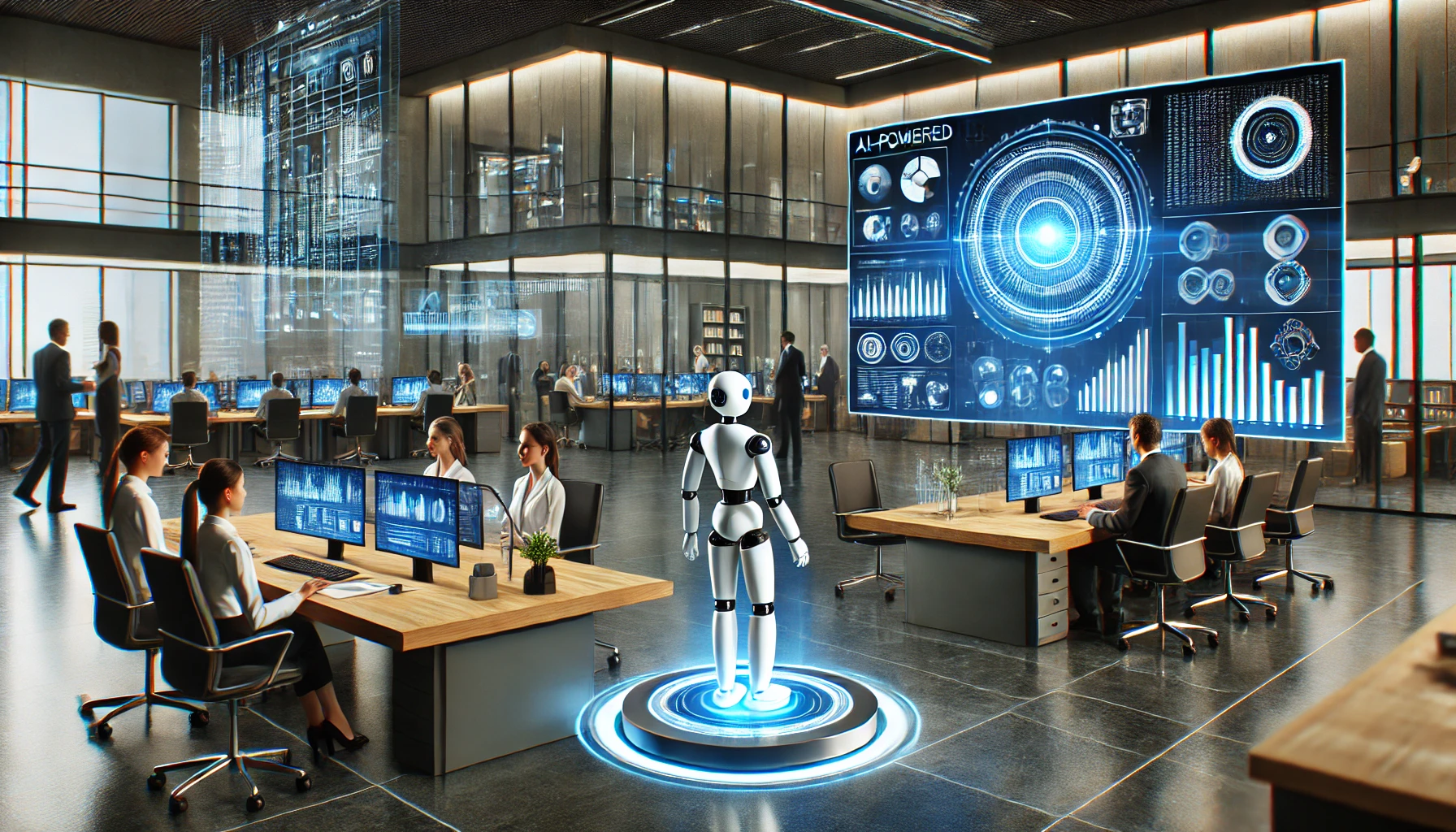Artificial intelligence (AI) is no longer a futuristic concept—it is actively reshaping industries worldwide. From automating repetitive tasks to improving customer experiences, AI is driving efficiency, reducing costs, and creating new business opportunities. In this article, we’ll explore how AI is transforming modern businesses, its key applications, and the challenges companies face in adopting AI-powered solutions.
AI in Business: A Game Changer
Businesses across various industries are integrating AI to streamline operations, enhance decision-making, and optimize customer interactions. AI-powered systems analyze vast amounts of data in real time, providing insights that help companies stay ahead of the competition.
One of the most significant advantages of AI is automation. Routine and time-consuming tasks, such as data entry, inventory management, and scheduling, can be handled by AI-powered software. This allows employees to focus on more strategic and creative work, increasing overall productivity.
Key Applications of AI in Business
1. AI-Powered Customer Service
Customer service is one of the areas where AI has made a substantial impact. Companies now use AI-driven chatbots and virtual assistants to provide instant customer support. These tools can handle common inquiries, resolve complaints, and even process transactions without human intervention.
For example, businesses like Amazon and Apple use AI-powered virtual assistants like Alexa and Siri to interact with users and improve the customer experience. AI chatbots, such as those implemented by banks and e-commerce platforms, help customers check their account balances, track orders, and troubleshoot issues in real time.
2. AI in Marketing and Personalization
AI has revolutionized digital marketing by enabling businesses to deliver personalized content to consumers. AI-powered algorithms analyze customer behavior, purchase history, and browsing patterns to recommend products and services tailored to individual preferences.
Companies like Netflix and Spotify leverage AI to provide personalized recommendations. Similarly, e-commerce platforms like Amazon use AI-driven suggestions to increase sales and improve customer satisfaction. AI also plays a vital role in programmatic advertising, where it automates ad placements to target the right audience efficiently.
3. AI in Human Resources and Recruitment
Recruitment processes have become more efficient with AI-powered tools that analyze resumes, conduct preliminary interviews, and assess candidates based on data-driven insights. AI can scan thousands of applications in seconds, helping HR teams identify the best candidates for a job.
AI-powered HR platforms, such as HireVue and Pymetrics, use machine learning to assess applicants’ skills, personality traits, and cultural fit. These tools reduce hiring biases and improve decision-making, leading to a more efficient and fair recruitment process.
4. AI in Finance and Fraud Detection
The financial sector has adopted AI for risk assessment, fraud detection, and algorithmic trading. AI systems analyze transaction patterns to identify suspicious activities, helping banks and financial institutions prevent fraud.
For instance, PayPal and major credit card companies use AI to detect fraudulent transactions in real time. Machine learning models can recognize unusual spending behavior and flag potential security threats, reducing financial losses.
5. AI in Supply Chain and Logistics
AI enhances supply chain efficiency by optimizing inventory management, demand forecasting, and route planning. AI-driven logistics solutions help companies reduce operational costs and improve delivery times.
Retail giants like Walmart and Amazon use AI to predict demand fluctuations and automate warehouse management. AI-powered robots assist in sorting, packaging, and shipping goods, ensuring faster and more accurate order fulfillment.
6. AI in Healthcare and Diagnostics
AI is transforming the healthcare industry by improving diagnostics, patient care, and drug development. AI-powered systems can analyze medical images, detect diseases, and suggest treatment plans with high accuracy.
For example, IBM Watson Health uses AI to assist doctors in diagnosing complex medical conditions. AI-driven predictive analytics also help hospitals optimize patient care and resource allocation, reducing wait times and improving overall efficiency.
Challenges of AI Adoption in Business
Despite its benefits, AI adoption comes with challenges that businesses must address.
- High Implementation Costs: Developing and integrating AI solutions require significant investment, which can be a barrier for small businesses.
- Data Privacy and Security: AI systems rely on vast amounts of data, raising concerns about data privacy and cybersecurity risks.
- Workforce Displacement: As AI automates tasks, some jobs may become obsolete, leading to workforce displacement and the need for reskilling.
- Ethical Concerns: AI decision-making processes must be transparent and unbiased to avoid ethical dilemmas in hiring, lending, and other critical areas.
The Future of AI in Business
AI will continue to evolve, bringing even more advancements to the business world. The integration of AI with emerging technologies like the Internet of Things (IoT), blockchain, and augmented reality will create new opportunities for innovation.
As AI becomes more accessible, businesses of all sizes will be able to leverage its power to enhance efficiency, improve customer experiences, and drive growth. Companies that embrace AI early will gain a competitive advantage and stay ahead in the digital economy.
AI is not just a trend—it is a transformational force shaping the future of business. Those who adapt and harness its potential will lead the way in the next era of technological advancement.
